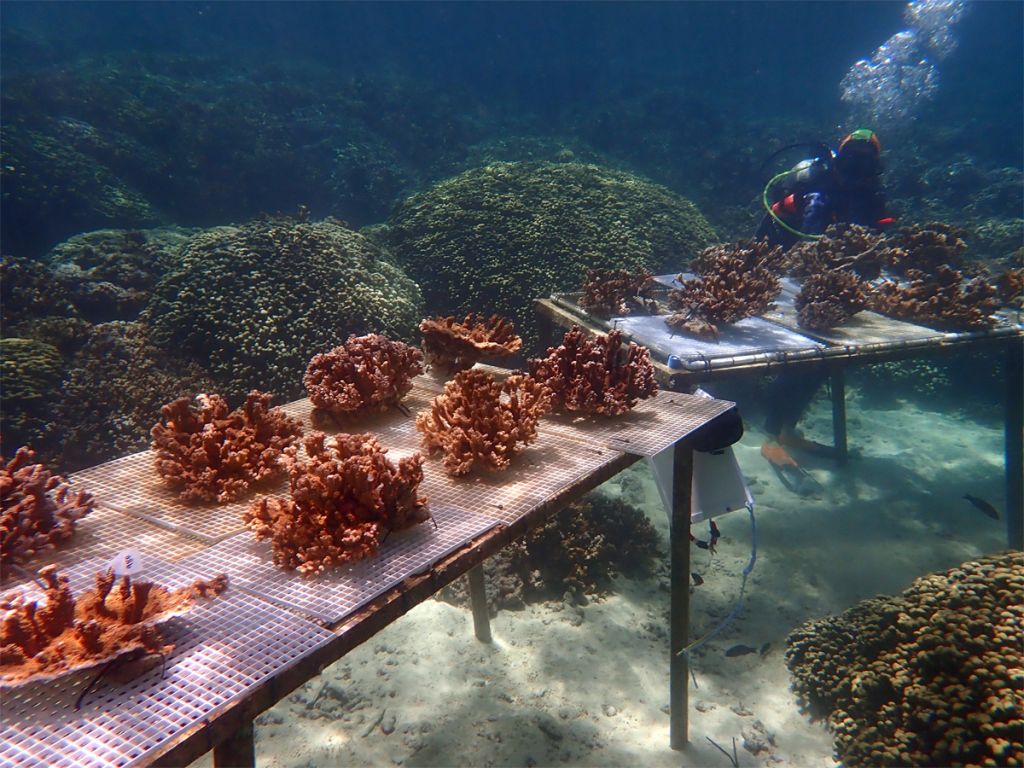Next generation husbandry for resilient coral reef restoration in Hawaiʻi
PRINCIPAL INVESTIGATOR: Crawford Drury
Research Track: Aquaculture

Coral reefs are important ecosystems that support marine diversity, but they are threatened by multiple stressors, including climate change. Among these stressors, increasing temperatures are particularly dangerous and lead to coral bleaching, which kills reefs and compromises the services they provide to the broader ecosystem, including people. Coral restoration is one potential strategy to address this problem, using adult corals moved between reefs. However, sexual reproduction in corals may also be a viable tool for conservation and has advantages in promoting diversity and resilience.
This project plans to optimize sexual reproduction pipelines in rice coral (Montipora capitata) by automating larval rearing with simple tools like stirrers and air bubblers. Next, juvenile corals will be co-cultured with native Hawaiian collector urchins in an attempt to increase survivorship after settlement. Finally, juvenile corals will be outplanted to a local nursery in Kāneʻohe Bay at four different ages to explore the feasibility of outplanting and how coral age and size may impact survivorship and temperature tolerance on the reef. These projects will also support traineeships for local high school and college students, focusing on groups traditionally underrepresented in STEM. We hope this work will help address aquaculture, climate resilience, sustainable coastlines, and scientific literacy in Hawaiʻi.

